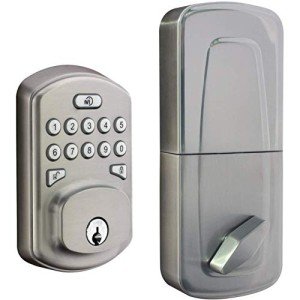Buy Industrial Lighting in the UK: A Comprehensive Guide
In the ever-evolving world of industrial operations, adequate lighting is essential for safety, productivity, and efficiency. In the UK, organizations deal with special challenges that require specialized lighting services customized for industrial environments. This short article offers an extensive look into the considerations for purchasing industrial lighting, the types available, and some frequently asked concerns to enhance the buying process.
Comprehending Industrial Lighting
Industrial lighting encompasses a large range of fixtures, from high bays utilized in storage facilities to explosion-proof lights for dangerous locations. Selecting the best lighting can enhance presence, decrease security dangers, and even reduce energy costs.
Key Considerations for Industrial Lighting
When buying industrial lighting, several elements require to be thought about:
- Type of Facility: Assess whether the lighting is for a factory, storage facility, or an outdoor area.
- Purpose: Determine whether the lighting is for general lighting, task-oriented activities, or safety/security.
- Energy Efficiency: Opt for energy-efficient lights to lower functional expenses.
- Regulative Compliance: Ensure that the lighting satisfies UK security and quality standards.
- Sturdiness: Industrial environments can be severe; lighting items require to hold up against conditions like wetness, dust, and vibrations.
- Installation Considerations: Understand the requirements for installing fixtures in high or hard-to-reach areas.
Kinds Of Industrial Lighting
There are numerous kinds of industrial lighting fixtures available in the UK. Below are some of the most common types:
Table 1: Types of Industrial Lighting
| Type | Description | Finest Use Cases |
|---|---|---|
| High Bay Lights | Utilized for big spaces with high ceilings, such as storage facilities. | Warehouses, factories |
| Low Bay Lights | For lower-ceiling environments where general illumination is required. | Retail spaces, making |
| Flood Lights | Offers broad, even light; ideal for outdoor settings. | Parking lots, outdoor work areas |
| Job Lights | Adjustable and movable; focus light on specific areas. | Assembly lines, inspection areas |
| LED Strip Lights | Versatile and energy-efficient. | Shelving, signage |
| Explosion-Proof Lights | Created for areas where flammable materials are kept or used. | Chemical plants, oil refineries |
Advantages of LED Industrial Lighting
LED innovation has actually transformed industrial lighting, offering many advantages:
- Energy Efficiency: LEDs consume considerably less power compared to traditional incandescent or fluorescent lighting.
- Long Lifespan: LED bulbs can last up to 25,000 hours or more, considerably minimizing upkeep expenses and downtime.
- Low Heat Emission: Unlike traditional lights, LEDs produce very little heat, which can improve security, especially in hot work environments.
- Adaptability: Available in different colors and strengths, making them ideal for diverse applications.
- Instant Start-Up: LED fixtures supply full brightness immediately, eliminating the flickering delay related to some conventional lights.
Acquiring Industrial Lighting in the UK
When sourcing industrial lighting in the UK, companies have various choices. Establishing a clear getting strategy will allow buyers to make informed decisions.
Steps for Purchasing Industrial Lighting
- Assessment of Requirements: Evaluate the specific lighting needs based on the type of industrial center and activities carried out.
- Budgeting: Determine the budget plan for acquiring not just the fixtures but also setup and upkeep.
- Research Suppliers: Investigate reputable providers that focus on industrial lighting solutions.
- Evaluate Product Quality: Look for accreditations and testimonials to ensure product resilience and compliance.
- Consider Sustainability: Opt for suppliers that offer environmentally friendly lighting solutions.
- Installation Support: Check if the provider provides setup services or guidance.
Where to Buy Industrial Lighting in the UK
Here's a list of suggested suppliers and sellers in the UK:
- LightHouse: Specializes in a large range of industrial lighting solutions and provides both online and physical shopping.
- ElectricalDirect: A comprehensive source for all types of industrial lighting fixtures and parts.
- Amazon UK: Features a wide array of industrial lighting products ranging from spending plan alternatives to high-end solutions.
- B&Q:&A popular home improvement store that also brings a choice of industrial-grade lighting.
- eBay: A marketplace where users can find new and pre-owned industrial lighting items at discounted prices.
Regularly Asked Questions (FAQs)
1. What is the distinction in between high bay and low bay lights?
High bay lights are created for areas with ceilings higher than 15 feet, supplying bright lighting for large areas. Low bay lights, on the other hand, are suitable for areas with lower ceilings, usually ranging from 8 to 15 feet.
2. How do I understand which type of industrial lighting I need?
Assess your center's height, layout, and the specific tasks being performed. Engaging with Buy Outdoor Lighting UK can also provide tailored assistance based on your distinct requirements.
3. Are LED lights worth the financial investment?
Yes, while LED lights might have a higher upfront expense, their energy effectiveness, durability, and lowered maintenance needs normally result in substantial cost savings gradually.
4. What regulatory requirements should industrial lighting satisfy in the UK?
In the UK, industrial lighting needs to adhere to British Standards (BS), which include guidelines on health, safety, and performance standards for lighting systems.
5. Can I set up industrial lighting myself?
It depends on your proficiency and local policies. While Lighting Store UK might go with DIY setups, it's typically recommended to work with a certified electrician to guarantee safety and compliance.
Buying industrial lighting in the UK requires thoughtful consideration of various aspects, from the type of facility and lighting requires to budget and long-term efficiency. Businesses can profit of improved safety and performance by thoroughly assessing product alternatives and engaging with respectable suppliers. As the demands of the industrial landscape evolve, staying informed on lighting developments will guarantee that companies stay competitive and certified.

